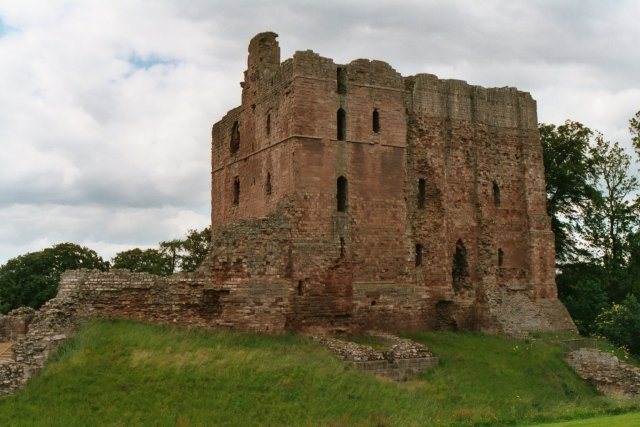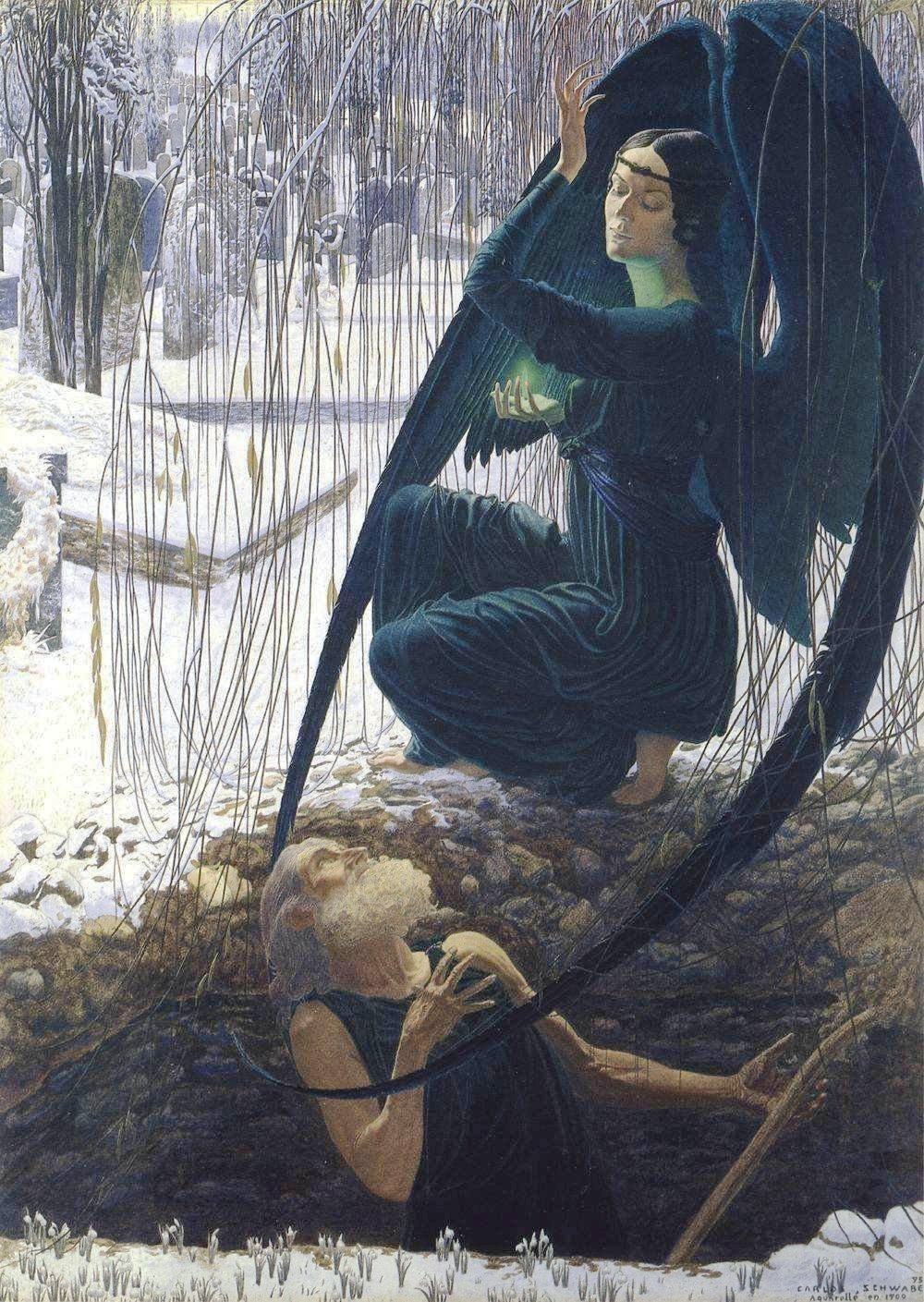From Sir Walter Scott's
The Lay of the Last Minstrel:
canto 3, XXIV:
So pass'd the day; the evening fell,
'Twas near the time of curfew bell;
The air was mild, the wind was calm,
The stream was smooth, the dew was balm;
E'en the rude watchman on the tower
Enjoy'd and bless'd the lovely hour.
Far more fair Margaret lov'd and bless'd
The hour of silence and of rest.
On the high turret sitting lone,
She waked at times the lute's soft tone;
Touch'd a wild note, and all between
Thought of the bower of hawthorns green.
Her golden hair stream'd free from band,
Her fair cheek rested on her hand
Her blue eyes sought the west afar
For lovers love the western star.
- Mr. Rivers has just given Jane the rundown of his life and his abandoned ambitions, and now he's faced with this gorgeous girl and, upon offering mild reprimand for her being out and about so late, "...he crushed the snowy heads of the closed flowers with his feet." I suspect foreshadowing, but judging by further paragraphs, the crushed flowers are for his forceful efforts to quell the love in his heart for this pretty thing cooing over both him and his dog (after all, if she can't caress him, might as well caress his dog--metonymic, it would seem).
- "inexorable as death" -- what a way to paint your brother! Inexorable = grim.
*







